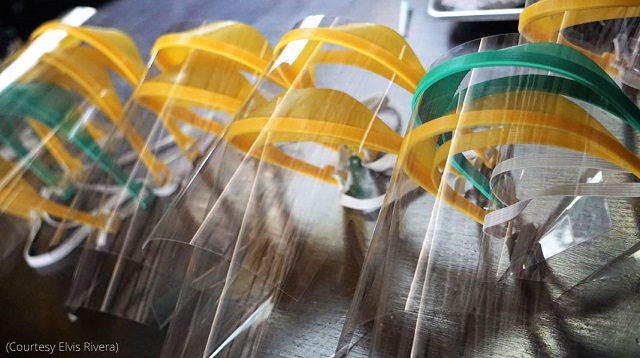Scholars around the world who have been part of the State Department’s Fulbright Program are using their experience to help their communities during the COVID-19 pandemic.
The Fulbright Program, in partnership with more than 160 countries, gives students, scholars, teachers, artists and scientists of all backgrounds the opportunity to help find solutions to shared international concerns.
Elvis Rivera, a science teacher at a middle and high school in San Pedro de Copán, Honduras, completed the Fulbright Teaching Excellence and Achievement Program in 2014 and the Fulbright Foreign Student Program in 2018.
While studying at Syracuse University in New York, Rivera visited the Centers for Disease Control and Prevention in Atlanta, where he heard epidemiologist Dr. William Foege lecture on public health. Rivera says this prepared him to help his home country during the COVID-19 pandemic. “I like to think that by contributing to public health workers from my communities I am honoring Dr. Foege,” he said.

These face shields, made of recycled plastics and polylactic acid, were created with a 3-D printer. (Courtesy of Elvis Rivera)
Since the outbreak, Rivera has made 44 face shields by himself, using only 2 kilograms of raw polylactic acid material and recycled plastics, which was just enough to make the shields.
He said that each shield took around two hours and 15 minutes to create, which included the preparation of soda bottles that were melted down. He donated the completed face shields to medical personnel working in the public health center in his hometown, Cucuyagua, and the public health center in San Pedro de Copán. “Some employees from the closest city hospital received some face shields too,” he said.
Dr. Ashish Goel received the Fulbright-Nehru Academic and Professional Excellence Fellowship in 2016 to pursue his master’s degree in public health at Johns Hopkins University in Baltimore. He specialized in epidemiology and biostatistics and “became a more capable teacher, abler researcher with a deeper understanding of epidemiology and the skill of biostatistical analysis,” he says.

Dr. Ashish Goel, right, with colleagues at the Guru Teg Bahadur Hospital in Delhi (Courtesy of Ashish Goel)
Now at a public hospital in Delhi, Dr. Goel is leading his institution’s coronavirus treatment plan. He says his Fulbright experience prepared him to tackle this challenge.
“I not only understand the disease better than I would have been able to, had I not received the fellowship, but am also able to provide this vision to my colleagues at our hospital,” he says.
Banner image: Two-time Fulbright alumnus Elvis Rivera holds up one of the face shields he made for health care workers in Honduras. (Courtesy of Elvis Rivera)







COMMENTS0
LEAVE A COMMENT
TOP